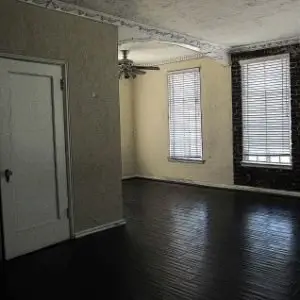
DISCLAIMER: With regard to the article below, it is important to note that each adverse possession case is unique to the set of specific facts associated with each individual client. One should always seek the legal advice of an attorney and not make inferences from this article as written.
Adverse possession is a peculiar concept allowing an individual to acquire a property’s title when they put the property to beneficial use for a statutorily prescribed period of time. Florida Statutes § 95.18 maintains that when a person publicly moves into another’s neglected property and improves such property, they can earn the title to it after a period of time has passed.
What It Means to Hold the Title to a Property
In real estate, a title is a legal document naming you the rightful owner of the property. As the owner of a property, you are allowed to make modifications to the property and transfer ownership to another party.
It is important that you understand the difference between a title and a deed. A title is the concept of ownership, meaning that it’s not a written-out document. A deed, however, is a tangible document that outlines your ownership of a property.
Real estate law becomes complicated because a person may partially or fully own a property. Limitations to your ownership can also occur, such as when you fail to pay property taxes, or your claim lacks “color of title.”
To consult with an experienced real estate lawyer today, call 855-780-9986
Claiming with “Color of Title”
Florida Statutes § 95.12 specifically requires a possessor to occupy the property for at least seven years. That occupation must be “under a color of title” or via payment of property taxes. Color of title exists when one appears to have acquired a title to real estate, but there is a defect in the title that causes it to be ineffective. Thus, ownership is not established.
Claiming Without Color of Title
When claiming ownership without color of title, a person has no reason to believe that they are the rightful owner of the property. This usually occurs when a trespasser who illegally entered the premises tries to claim title to the property.
If a person claims the property without color of title, they must meet certain requirements for the courts to recognize their claim to the property.
The Five Requirements of Florida’s Adverse Possession Law
There are five key requirements in each adverse possession claim:
- Hostility – The possessor must either be aware that he is trespassing on another’s land, or he must have made a reasonable mistake, such as relying on a defective deed.
- Actual possession – The possessor must be physically present on the land and treat the property as their own.
- Open and notorious possession – To satisfy this requirement, the possession of the property cannot be secretive.
- Exclusive and continuous possession – Here, the possessor may not share their possession with others and must be in possession of the property for the statutorily prescribed period of time.
- Improvement – The possessor must be improving, cultivating, or protecting the property claimed from a substantial enclosure on the land.
The law of adverse possession maintains that when a person publicly moves into another’s neglected property and improves such property, they can earn the title to it after a period of time has passed.
Click to contact our Florida Attorneys today
An Example of Applying Florida’s Adverse Possession Law
In 2013, a man living in a $2.5 million mansion invoked ownership by “adverse possession.” Even after several attempts, the police were unable to remove the man.
He continued to present adverse possession paperwork and related documents. He cited Florida’s adverse possession law that allowed a person to acquire the title to a property owned by another if they openly occupy the land and pay real property tax for at least seven years.
Bank of America, after a foreclosure, is currently the owner of the house involved in this case. The possessor posted a notice in the house’s front window naming him as a living beneficiary entitled to live in the house. This certainly complicated things, leaving many to wonder whether the man’s presence was lawful.
This is a good example of a situation that could benefit from an adverse possession lawyer. If you have questions regarding Florida’s adverse possession law, we can discuss your specific case during a consultation. Every case is different, and you may have legal options that you have not yet considered.
We can determine how your individual circumstances may affect your right to the property in question, and we can explain how our real estate attorneys can help.
Submit a Consultation Request form today
A Lawyer Can Help You Prove Your Right to Property by Adverse Possession
On your own, it can be difficult to understand and navigate the complexities of Florida’s adverse possession laws. A lawyer from our firm can ensure you understand and comply with each of the state’s requirements.
When you hire a lawyer to represent you, he will:
- Ensure you understand all relevant state laws
- Assist with filing all required documents and forms
- Fight to have an appropriate title issued in your name
Adverse possession is not always a possibility. For example, it cannot be used to claim ownership of government-owned or controlled land. If you are uncertain about the ownership rights or status of any piece of land, a real estate lawyer can help you understand the property’s origins and availability.
Protect Your Florida Property from Adverse Possession
You might think the only way to lose rights to your property is by selling it or by having your lender foreclose on it. In Florida, you can unwittingly lose possession of your property through adverse possession. You do not have to relinquish control or ownership of your property simply because it has been encroached upon for a lengthy period of time.
If this has happened to you, a real estate litigation lawyer can help you retain or reestablish ownership of your property. He will explain the laws that make adverse possession possible and the ones that work in your favor.
Your lawyer can help you fight for your property by proving:
- The required elements of adverse possession have not been met.
- You’ve been managing or living on the property for at least seven years, meaning it belongs to you––not another person.
Adverse possession can involve an entire plot of land or a few inches of abutting property. The lawyer who represents you can clarify or verify the boundary lines of the property in question.
Adverse Possession in Florida Can Be Remedied
In some cases, another person claiming possession of land that is rightfully yours might be a simple mistake or a miscalculation of their property lines. If this is the case, a simple request and explanation might help you obtain the desired result.
In other cases, the actions are intentional, or the involved party might be unwilling to acknowledge or correct a mistake. If either of these scenarios is the case, a real estate lawyer can help.
Your lawyer can draft a letter requesting that the person encroaching on your property move. If the letter does not produce the desired result, your lawyer can explain the legal steps you can take toward regaining control of your property.
Bogin, Munns & Munns Is Ready to Advocate for You
Our team of real estate lawyers has years of legal experience remedying property disputes. Using your case’s evidence, we will assert your lawful right to a property and prevent others from encroaching on your rights.
We know Florida’s real estate law inside and out. We also know how to use the law to our clients’ benefit. When you partner with us, you can rest assured that we’re doing everything possible to remedy your case with the best possible outcome.
Work with a Florida Real Estate Attorney from Our Firm
Clearly, there are several complexities involved with Florida’s adverse possession law. If you find yourself in the midst of such a scenario, you have the right to hire a real estate attorney to protect your interests.
The real estate lawyers at Bogin, Munns & Munns are here to help. We are ready to put our years of legal experience to work for you. Contact us today for a consultation on your case.
NOTICE: The article above is not intended to serve as legal advice, and you should not rely on it as such. It is offered only as general information. You should consult with a duly licensed attorney regarding your Florida legal matter, as every situation is unique.
Please know that merely reading this article, subscribing to this blog, or otherwise contacting Bogin, Munns & Munns does not establish an attorney-client relationship with our firm. Should you seek legal representation from Bogin, Munns & Munns, any such representation must first be agreed to by the firm and confirmed in a written agreement.
Call or text 855-780-9986 or submit our Consultation Request form today






